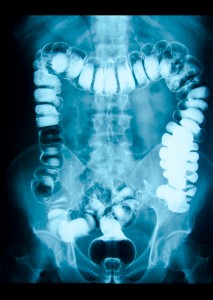 According to a recent study published in the Journal of the American College of Surgeons, a new healthcare approach based on multidisciplinary care management for patients in need of colorectal surgery results in both reduced length of hospital stays and medical costs. The study is titled, “Standardization of Care: Impact of an Enhanced Recovery Protocol on Length of Stay, Complications, and Direct Costs after Colorectal Surgery.”
According to a recent study published in the Journal of the American College of Surgeons, a new healthcare approach based on multidisciplinary care management for patients in need of colorectal surgery results in both reduced length of hospital stays and medical costs. The study is titled, “Standardization of Care: Impact of an Enhanced Recovery Protocol on Length of Stay, Complications, and Direct Costs after Colorectal Surgery.”
A multidisciplinary team from the University of Virginia Health System designed an enhanced recovery (ER) protocol based on preoperative counseling with active patient participation, carbohydrate loading, multimodal analgesia with avoidance of intravenous opioids, intraoperative goal-directed fluid resuscitation, immediate post-operative feeding and ambulation.
“The key to our success is that we brought everyone who cares for these patients together, including anesthesiologists, nursing staff, pharmacists, nutritionists, and we coordinated every detail of their care,” said study coauthor Traci Hedrick, MD, FACS, assistant professor of surgery, in a recent news release. “This recovery plan was a quality initiative right from the start.”
The research team compared 109 patients who underwent surgery with the ER protocol and compared the results with 98 consecutive historical controls (conventional). They then conducted risk stratification of predicted length of stay (LOS) for each patient using the National Surgical Quality Improvement Program (NSQIP) and found that risk adjusted predicted LOS was similar for each group at 5.1 and 5.2 days.
Furthermore, the researchers observed significant reductions in LOS, morphine equivalents, intravenous fluids, return of bowel function, and overall complications with the ER group.
In terms of costs, the results from this study showed that there was a $7,129/patient reduction in direct cost, corresponding to a cost savings of $777,061 in the ER group. In addition, patient satisfaction was improved during the study period.
Dr. Hedrick explained, “We were actually able to prove that the predicted length of stay was the same for both groups, indicating that both groups were very similar and that the comparisons were accurate. We are now working to implement a similar protocol for other surgical specialties, as well as looking for additional ways to further improve our outcomes and patient experience. This study shows just how successful small investments can be at raising the quality of care for patients.”
“I think in five years this will be the standard way that we are managing patients, because the results are so dramatic,” Dr. Hedrick added in the news release. “It provides higher quality at lower cost, which is the ultimate goal.”
Results from this study strongly indicate that the implementation of an ER protocol improves patient satisfaction and reduces LOS complication rates along with a cost reduction for patients undergoing both open and laparoscopic colorectal surgery.


